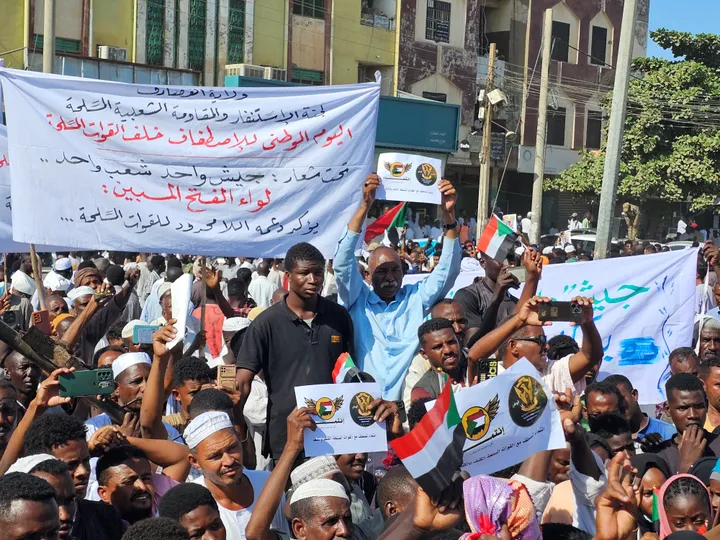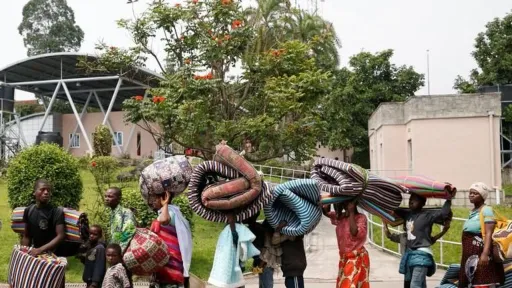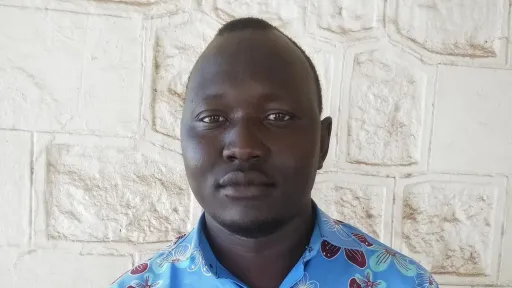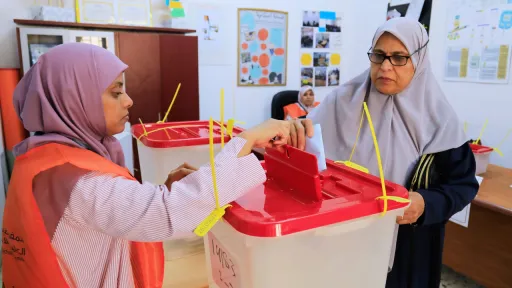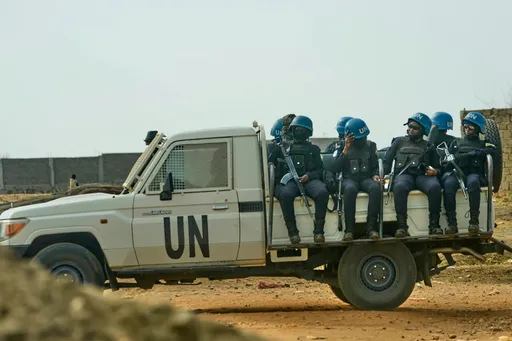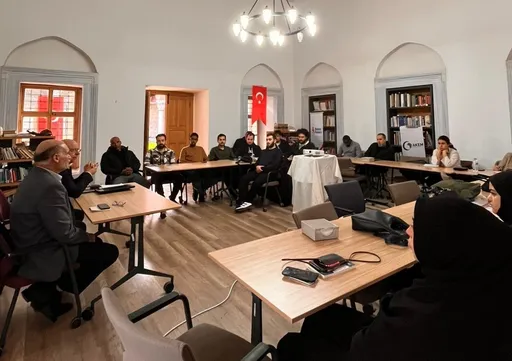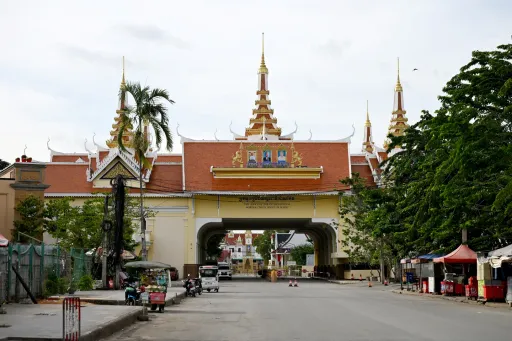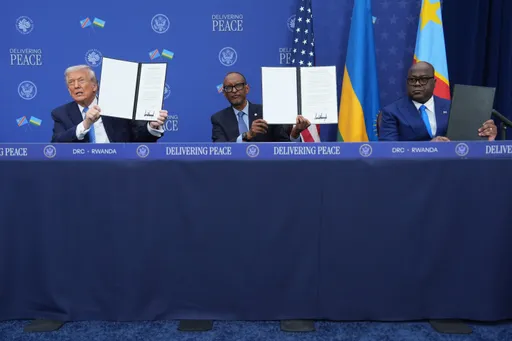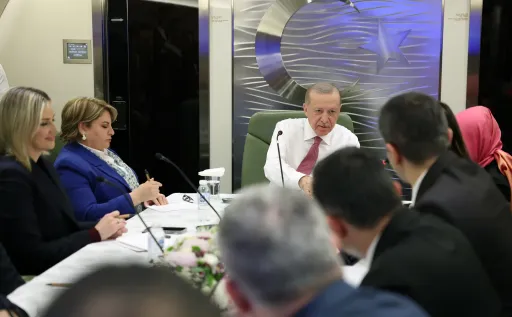By Ebubekir Yahya
On the night of July 15, 2016, a dissident faction of the army owing allegiance to the Fetullahist Terrorist Organisation (FETO) attempted a coup aimed at overthrowing the democratically elected government of Türkiye.
It remains the darkest night in Turkish political history, etched in the infamy of treason against the nation. Nobody could comprehend exactly what was happening.
Terrorists infiltrated the Armed Forces, firing at the very civilians they were supposed to protect. Fighter jets flew overhead and bombarded civilian areas for hours, plunging the country into cataclysm.
In the span of a single night, FETO's injection of treachery into the ranks of the army led to 249 citizens being martyred across the country. Another 2,196 were wounded, majorly in the commercial hub of Istanbul and the capital city of Ankara.
The tide turned at the stroke of the midnight hour, when President Recep Tayyip Erdogan connected with citizens through the private television channel via a social media app to keep them abreast of what was happening.
The President called on his people to mobilise themselves, take to the streets and squares, and resist the coup plotters to save their democracy and the future of the country.
As the impact of Erdogan's emotive public appeal kicked in, the government soon started purging all public institutions of members either directly linked to or tilting towards FETO.
Seven years later, Turkish democracy is clearly thriving and the country's future hasn't looked better.
Cautionary tale for Africa
Since public resistance foiled FETO's attempts to engineer a coup by infiltrating the army, there has been a paradigm shift in Turkish foreign policy, especially in terms of how the nation engages with African countries.
FETO members had fled to different countries across the globe after the failed insurrection, especially to the US, where the mastermind of the attempted coup d’état of the terror cult, Fetullah Gulen, has been directing his terror cult has been for more than three decades.
African countries also witnessed the exodus of FETO members, joining their accomplices in those parts of the world where they dubiously operate businesses, especially running schools.
With the aim of permanently crippling the terror organisation and blocking its sources of income, Türkiye started engaging African countries, warning them against the danger of the presence of the terror swarms in their respective territories.
On several occasions, President Erdogan cautioned African leaders against the impending danger of FETO's presence in their countries, emphasising that sooner or later, the outfit might attempt exactly what it failingly tried on the night of July 15, 2016, in Türkiye.
The then Turkish foreign affairs minister, Mevlut Cavusoglu, also met many of his counterparts from African countries, narrating to them how FETO tried to overthrow Turkish democracy, and the looming threat of similar subversion by the terror nest in parts of the world it operates in.
The authorities advised African countries to banish or extradite FETO members, besides handing over the schools run by the outfit to the Maarif Foundation, a public non-profit foundation.
Boost to African alliances
Türkiye's unrelenting efforts to foster relationships and cooperation with the African continent has been a lesson in foreign policy.
The Third Türkiye-Africa Cooperation Summit in Istanbul from December 17 to 21, 2021, had several African presidents in attendance. In his speech at the event, President Erdogan sought more cooperation with African leaders, reiterating that it was a win-win both for Türkiye and the continent.
Turkish institutions such as TIKA, Yunus Emre and the Maarif Foundation have executed many projects on education, health and infrastructure in Africa without expecting anything in return.
Türkiye already is the first country in the world in terms of extending humanitarian aid, compared to its gross national product (GDP). It is worthy to note that Africa benefits from the largest share of this aid.
African countries have witnessed a significant increase in Turkish direct investment, with many such firms setting up base in the continent. The volume of business capital transacted between Türkiye and Africa stands at more than US $30 billion.
While addressing journalists during the Turkey-Africa III Economic Forum held in Istanbul between October 21-22, 2021, President Erdogan said, “Our aim is to first increase the volume to $50 billion, and then to $75 billion."
According to Prof. Yunus Turhan, director of the Ankara Haci Bayram Veli University's Center for The Application and Research of Mediterranean Basin and African Civilisation, consistency of effort has been the building block for business between Türkiye and Africa despite dips in between.
"In 2013, the business volume was $21.5 billion; then in 2014, it touched $20.7 billion, and by 2015, 18 billion. In 2016, it was $17 billion, and in 2018, this went up to $22 billion. In 2019, the figure was $22.4 billion, and in 2020, $22.6 billion. As of 2022, the volume has hit more than 33 billion dollars," he tells TRT Afrika.
Between 2016 and 2023, a lot of summits, forums and business conferences have been organised with the aim of boosting Turkish-African ties, and take the existing relationship to a more dynamic level, especially in the face of global competition for the continent's attention.
During the launch of TRT Afrika March 2023, the TRT-Africa Media Forum was organised, where members of the African Broadcasting Union and other journalists from the continent participated.
The launch of the TRT Afrika digital service to showcase "Afrika as it is" is seen as a turning point in Türkiye-Africa relations. The service produces news and features in four languages; English, French, Hausa, and Swahili.
Presidential visits
President Erdogan has already made the most visits to Africa among all heads of state from outside the continent. His last trip to Africa was in February 2022, when he visited three countries — Democratic Republic of Congo, Senegal and Guinea-Bissau.
In March 2016, a few months before the foiled coup attempt by FETO, President Erdogan was in Equatorial Guinea, Ghana and Nigeria.
In May of the same year, he had led business and diplomatic delegations to another three African countries — Uganda, Kenya and Somalia.
From 2003 to date, President Erdogan has officially visited more than 30 African countries in total.
The agenda for these visits centred on mutual business expansion, the fight against terrorism, and boosting diplomatic ties.
In all of these visits, bilateral agreements and investment MoUs are signed. Business and economic forums are organised. Turkish and African firms meet and explore the best ways they can collaborate with each other.
Growing defence industry
In recent years, the Turkish government under President Erdogan has put in a sustained effort to make the country independent of foreign assistance in the defence sector.
This commendable push has led to a boom in the Turkish defence industry, which is now counted among the leaders in manufacture of new-generation equipment.
Turkish security forces use locally manufactured weapons in combating terrorists within and outside the country. While fighting Daesh and PKK/YPG in northern Syria and northern Iraq, Turkish forces actively used made-in-Türkiye weapons.
After supplying such equipment to the Turkish armed forces, the defence industry is now exporting to different countries across the globe.
Recently, the world witnessed the performance of the Bayraktar TB armed drones used by Ukraine against Russia. In Kharabakh, Azerbaijan used the Bayraktar TB2 to satve off an Armenian invasion of its territory.
Turkish drones have also helped several African countries including Libya and Burkina Faso have also in tackling insecurity.
Türkiye can now said to be almost fully independent in terms of defence hardware and software, thanks to President Erdogan's initiatives. In keeping with the established line of cooperation with Africa, countries in the continent are not surprisingly at the forefront when it comes to importing defence hardware from Türkiye.
More than 30 African countries, including Nigeria, Benin, Chad, Congo, Djibouti, Gabon, Gambia, Guinea-Bissau, Ivory Coast, Kenya, Libya, Mali, Niger, Senegal, Tanzania, Rwanda, Ghana, Madagascar, Sudan, Somalia, Tunisia and Uganda, have signed protocols and MoUs with Türkiye for the supply of weapons manufactured in the country.
Presently, some personnel of the Nigeria Air Force are receiving training in Ankara on how to operate the T-129 helicopters the country bought from TUSAS, a Turkish fighter jet manufacturer.
In 2022, Nigeria announced the purchase of six T-129 helicopters from TUSAS as part of a security build-up aimed at rooting out terrorism from its territory.
Diplomacy in the air
Türkiye has the highest number of diplomatic missions in Africa among countries outside the continent. According to the Turkish foreign affairs ministry, the country currently has 12 embassies and 44 missions in Africa.
Prof. Turhan attributes this outreach to the consistency of mutual cooperation, including visits by President Erdogan to Africa and trips by African heads of state to Türkiye, after the events of July 15, 2016.
Turkish Airlines, too, has added more destinations in Africa to its network, topping the list of foreign careers flying to and from the continent. As of May 2023, Turkish Airlines had connections to and from an astounding 62 destinations in 41 African countries.
Education and scholarships
Türkiye gives utmost importance to its African policies of cooperation, which extends to creating a level playing field for all sides.
Prof. Turhan points out that after the abortive coup of July 15, 2016, Türkiye shifted its African focus with policies centring on human resource development.
"In its bid to cripple the activities of FETO outside the country after quashing them internally, Türkiye initiated a new action plan that acknowledged Africa as a very important continent," he tells TRT Afrika.
"FETO would operate freely in Africa, and Türkiye started a strategic move to stop the terror group's activities globally. This entailed focusing on its civil society formations and schools, which serve as lobbying instruments for the organisation in different countries. The terror group also waged a black propaganda against Türkiye through all means possible. As such, President Erdogan, whenever he meets African leaders during their mutual visits, tries to draw their attention against the danger posed by FETO."
During President Erdogan's 2017 visit to some South and East African countries such as Tanzania, Mozambique and Madagascar, the threat from FETO featured on the agenda for discussions.
According to Prof. Turhan, Türkiye's efforts to oust FETO from Africa takes four different dimensions. First and the most important is developing the education sector, something that is the biggest source of income to the terror organisation in African countries.
In June 2016, Türkiye incorporated the Maarif Foundation to operate within and outside the country. The mandate was for the foundation to take over all schools run by FETO on African shores.
Türkiye Maarif Foundation president, Prof Birol Akgun, tells TRT Afrika that it now operates in 25 African countries. "In 15 of these countries, schools operated by FETO have been handed over to the foundation."
Maarif Foundation is taking over these schools with the aim of freeing African countries from the impending danger of having FETO within their midst, as also to permanently block the outfit's sources of income outside Türkiye.
With its strategic and dynamic win-win policy, Türkiye aims to continue strengthening its relationship with the African continent in all sectors.
As Africa becomes a field for global competition, Türkiye needs to do more in order to maintain its deserved position in the continent.
More Turkish direct investment looks headed to Africa, especially in agriculture, energy, construction, mining, defence, and education.


